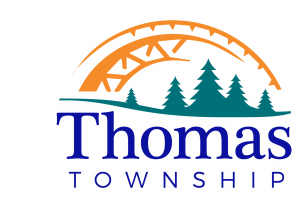10-6-3: DUTY TO DESTROY/CUT NOXIOUS WEEDS AND UNCONTROLLED PLANT GROWTH:
A. The owner and occupant of land on which noxious weeds are found growing shall destroy such weeds before they reach a seed bearing stage or a height of ten (10”) inches, whichever occurs first, and shall prevent their re-growth; provided that this requirement shall not apply to any incidental noxious weeds in fields devoted to growing any small grain or vegetable crop.
B. The owner and occupant of the following described lands shall keep uncontrolled plant growth thereon cut to a height of not more than ten (10”) inches:
- lots within platted subdivisions and condominium subdivisions, including vacant lots.
- unplatted lands with a dwelling or other occupied building thereon, for a depth of 165 feet, the depth of the parcel, or the depth of the established yard area, whichever is less.
- on parcels of land along improved streets in common usage within the township, including County Roads and State Trunkline Highways, and regardless of whether there is a dwelling or structure located thereon, to a depth of 165 feet or the depth of the ownership, whichever is the lesser.
- parcels zoned for commercial, industrial, manufacturing or high tech purposes, including mobile home park districts, either occupied by buildings or unoccupied by building.
Exception:
Parcels zoned Agricultural or Environmental shall not be required to follow the provisions found within this ordinance if the parcel is farmed or currently used for a recognized agricultural purpose. Residential homes on parcels within said zoning districts shall comply fully with Section 10-6-3-B(1) and (2) listed above.
10-6-4: PUBLIC NUISANCE:
All noxious weeds and uncontrolled plant growth in violation of the provisions of this ordinance are hereby declared to be a public nuisance.
10-6-5: ADMINISTRATIVE PROCEDURES AND REMEDIAL ACTIONS TO ENFORCE ORDINANCE:
A. The Township shall give notice of the applicability of this ordinance by one or both of the following means:
- publish in a newspaper of general circulation in the Township during the month of March a Notice that weeds and/or plant growth in violation of this ordinance not destroyed/cut by May 1 of that year as required by this Ordinance may be destroyed/cut by the Township, and that the owner of any such land shall be charged with the expenses incurred by the Township to destroy/cut such weeds/plant growth as many times as is necessary to keep the land in compliance with this ordinance, and that the Township shall have a lien against the land for the amount of such expenses, and that such lien shall be enforced in the manner provided by state law for the enforcement of real property tax liens; and/or
- mail by first class mail a notice to the owner, occupant or agent of any lands in violation of this ordinance, describing the methods of treating and eradicating the weeds and/or of otherwise complying with this ordinance, and giving notice of those matters referenced in subsection (1) immediately above. Failure to give such notice shall not constitute a defense to any action to enforce the payment of any penalty or debt provided for in this ordinance.
B. If the owner/occupant/agent has failed or refuses to comply with the ordinance after either form of notice provided for in Section 10-6-5(A) above, the Township or its agent/designee may enter upon such land with or without mechanical equipment and destroy/cut the weeds/plant growth thereon in violation of this ordinance.
C. All expenses incurred by the Township in such destruction/cutting shall be paid by the owner of such land. The Township shall have a lien upon such land for the full amount of such expenses, which may be enforced in the same manner as the enforcement of real property tax liens through entry upon the next tax roll of the Township and assessment as a general Township tax. Such expenses shall be subject to all interest and penalties provided for taxes due and collectible within the Township under the general tax laws of the State of Michigan. In addition to the foregoing, the Township may sue the owner in an appropriate court of law for the collection of such expenses.
